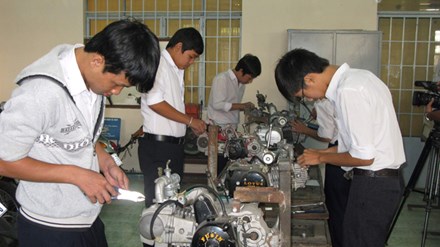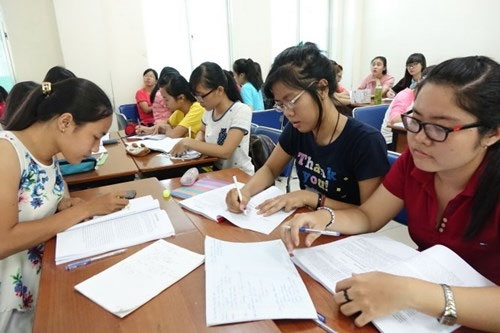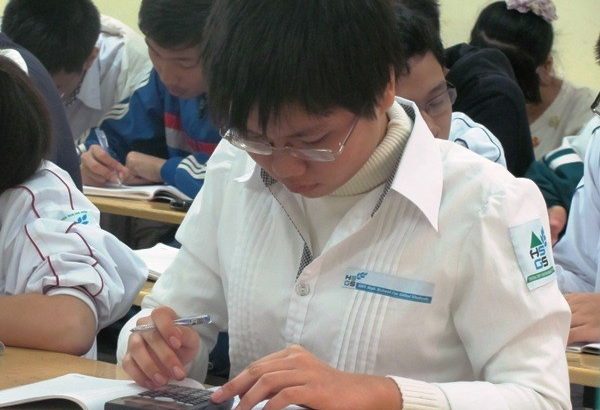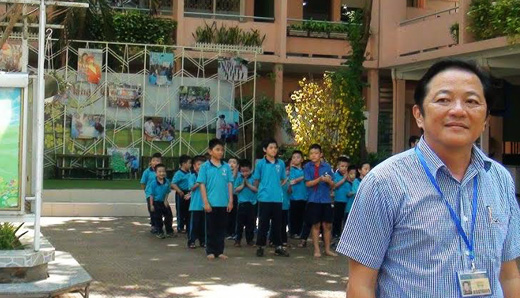Asia/Vietnan/02 de Septiembre de 2016/Fuente: Vietnan.net
RESUMEN: A medida que Vietnam se integra a la economía mundial, se enfrenta a los retos de transformación de una población joven en una mano de obra cualificada. La transformación requiere la aceleración de la reforma en todo el sistema educativo, y, sobre todo, en la educación superior. Como una de las universidades insignia en Vietnam, VNU-HCM City ha encabezado muchas iniciativas de reforma. Un esfuerzo clave ha sido la adopción de principios CDIO, que se utiliza para construir un marco modelo para la reforma curricular nacional. VNU-HCM Ciudad ha implementado un marco basado en la adopción y adaptación del enfoque CDIO para 62 programas de formación, incluyendo la ingeniería, desde 2010.CDIO ha ayudado sobre todo la mayoría de los profesores para ser competentes en la prestación de experiencias de aprendizaje integrados, y ha dado lugar a un aprendizaje activo y experimental, además de mejorar las evaluaciones de aprendizaje, todos los cuales son ahora más innovadora. los resultados del aprendizaje de los estudiantes también se han mejorado. CDIO ayudó programas de negocios internacionales y química de VNU-HCM City reciben la acreditación de la evaluación de la Red-Aseguramiento de la Calidad de la Universidad de la ASEAN en 2015.Los programas recibieron críticas positivas para el diseño de planes de estudio, instalaciones de enseñanza, la enseñanza y la estrategia de aprendizaje, y la evaluación de los alumnos.
Doan Thi Minh Trinh, vice director of Viet Nam National University-HCM City’s Department of Academic Affairs, said that initial results of CDIO implementation had improved the learning environment, the basic content of programmes and teaching and learning methods.
Trinh spoke at a conference about CDIO that was held on Thursday at Viet Nam National University-HCM City, which is one of 10 universities implementing CDIO as part of a pilot programme
As Viet Nam is integrating into the global economy, it faces challenges transforming a young population into a skilled labour force. The transformation requires acceleration of reform in the entire education system, and, especially, in higher education.
As one of the flagship universities in Viet Nam, VNU-HCM City has spearheaded many initiatives for reform.
A key effort has been the adoption of CDIO principles, which is being used to build a model framework for national curriculum reform.
VNU-HCM City has implemented a framework based on the adoption and adaptation of the CDIO approach for 62 training programmes, including engineering, since 2010.
Faculty and staff are also working in a more professional and systematic way, using the CDIO approach.
“Through implementation of CDIO, we have a more practical basis for improving policy in education reform,” Trinh said, adding that human resources were the most significant factor in education innovation and change.
CDIO has especially helped the majority of faculty to become competent in providing integrated learning experiences and has led to active and experiential learning, in addition to improving learning assessments, all of which are now more innovative. Student learning outcomes have also been enhanced.
CDIO helped VNU-HCM City’s international business and chemistry programmes receive accreditation by the ASEAN University Network-Quality Assurance evaluation in 2015.
The programmes received positive reviews for curriculum design, teaching facilities, teaching and learning strategy, and student assessment.
Pham Ngoc Tuan of HCM City University of Technology’s mechanical engineering faculty said that innovation was integrated into the CDIO syllabus.
“Via the CDIO syllabus, students are more self-confident and can become future engineering leaders with an innovative spirit,” he said.
The conference attracted more than 300 representatives of universities and colleges as well as enterprises throughout the country.
Fuente: http://english.vietnamnet.vn/fms/education/162914/vietnamese-universities-reform-their-curricula.html













 Users Today : 14
Users Today : 14 Total Users : 35459609
Total Users : 35459609 Views Today : 39
Views Today : 39 Total views : 3418011
Total views : 3418011